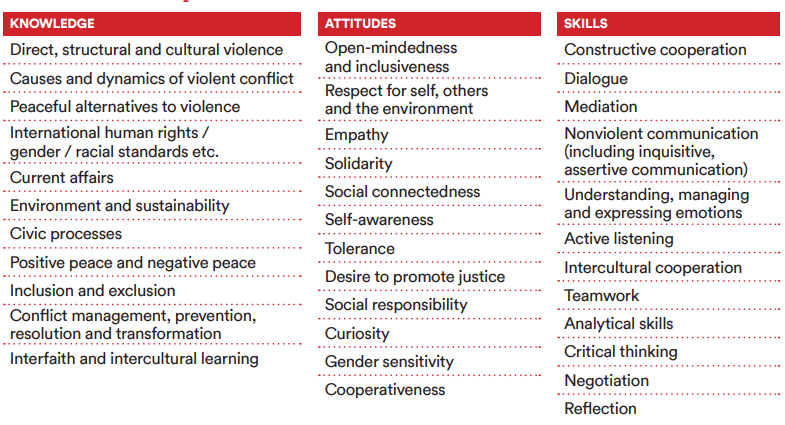What is Peace Education?
Peace Education is the process of promoting the knowledge, skills, attitudes and values needed to bring about behavior changes that will enable children, youth and adults to prevent conflict and violence, both overt and structural; to resolve conflicts peacefully; and to create the conditions conducive to peace, whether at an intrapersonal, interpersonal, intergroup, national or international level.
Peace education is any and all education for persons from young children through senior adults, which empowers them to understand the dynamics of conflict and peace, and develop skills in transforming conflict from destructive operations to constructive operations. Peace education is comprised of specific skills, even for young children. When persons learn empathy and compassion, when they learn to listen carefully, when they learn to solve problems with fairness and nonviolence, when they learn how to produce democracy and sustainability, these are some of the skills that constitute peace education.
A brief historical perspective of Peace Education
Peace Education Competences
Peace education programs are rich and diverse - there are many different forms of peace education, and each program must be relevant for the context in which it is grounded.

